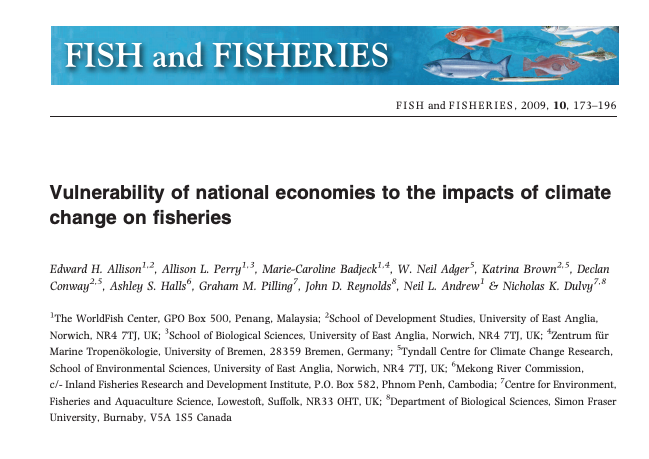Vulnerability of national economies to the impacts of climate change on fisheries

Anthropogenic global warming has significantly influenced physical and biological processes at global and regional scales. The observed and anticipated changes in global climate present significant opportunities and challenges for societies and economies. We compare the vulnerability of 132 national economies to potential climate change impacts on their capture fisheries using an indicator-based approach. Countries in Central and Western Africa (e.g. Malawi, Guinea, Senegal, and Uganda), Peru and Colombia in north-western South America, and four tropical Asian countries (Bangladesh, Cambodia, Pakistan, and Yemen) were identified as most vulnerable. This vulnerability was due to the combined effect of predicted warming, the relative importance of fisheries to national economies and diets, and limited societal capacity to adapt to potential impacts and opportunities. Many vulnerable countries were also among the world’s least developed countries whose inhabitants are among the world’s poorest and twice as reliant on fish, which provides 27% of dietary protein compared to 13% in less vulnerable countries. These countries also produce 20% of the world’s fish exports and are in greatest need of adaptation planning to maintain or enhance the contribution that fisheries can make to poverty reduction. Although the precise impacts and direction of climate-driven change for particular fish stocks and fisheries are uncertain, our analysis suggests they are likely to lead to either increased economic hardship or missed opportunities for development in countries that depend upon fisheries but lack the capacity to adapt.